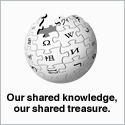Inna K(o)uper:
CLIR blog has recently posted a piece on re-skilling for librarians by Christa Williford, focusing on digital humanities librarianship. What kind of skills do librarians need in order to be relevant in contemporary research environments? The list can be pretty long, moreover, there might be multiple lists.
Another list was proposed in a report that Christa mentioned, “Re-skilling for research” by Research Libraries UK (RLUK). The report contains results of a series of studies that aimed to map the needs of researchers onto tasks to be undertaken by subject librarians.
The report is long, but the message is the same over and over: librarians’ roles and skills are quite limited and traditional; they do not match the needs. Subject librarians are not involved at the early stages of research that involve conceptualization and planning. Most of the services are still offered in the areas of literature search and information management (how to store and organize everything). Services that are related to data collection, management, analysis and preservation are in their infancy at best.
Via
Karen du Toit



 Your new post is loading...
Your new post is loading...








